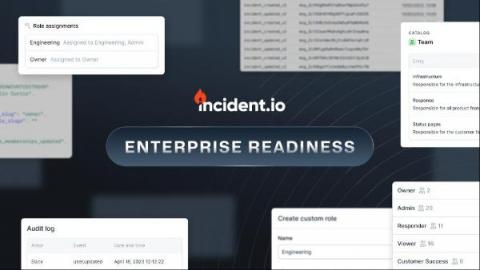Practical guidance for getting started as a site reliability engineer
At the beginning of May, I joined incident.io as the first site reliability engineer (SRE), a very exciting but slightly daunting move. With only some high-level knowledge of what the company and its systems looked like prior to this point, it’s fair to say that I didn’t have much certainty in what exactly I’d be working on or how I’d deliver it.










